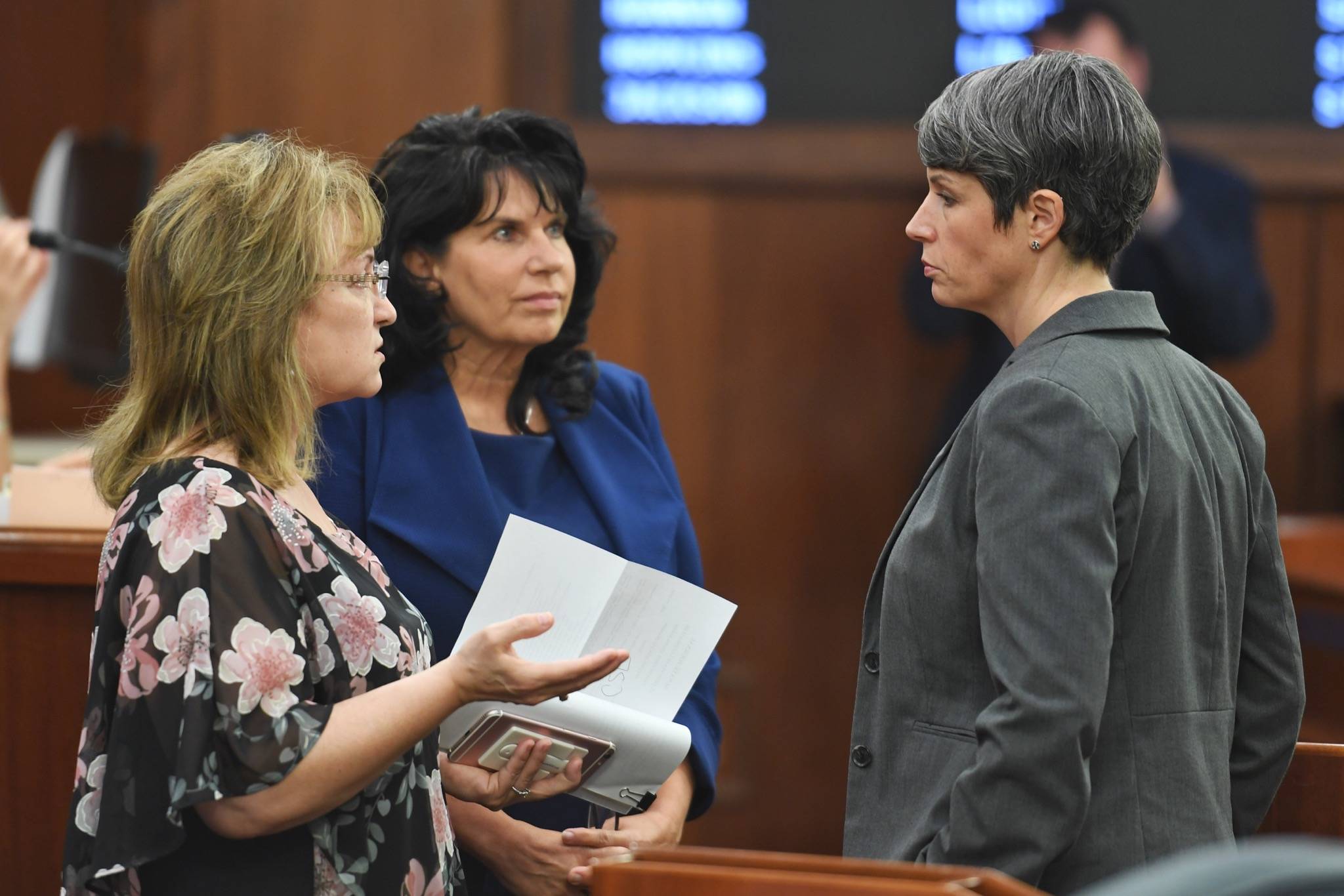For the second time in as many days, the Alaska Legislature failed to pass a spending bill, leaving dozens of state programs without funding, and hundreds of millions in federal matching funds just out of reach.
House Speaker Bryce Edgmon, I-Dillingham, said in a press release Monday that the House will, “hold a vote to rescind previous action on S.B. 2002 to get the thirtieth vote,” either from members who previously voted no or from absent members, the release said.
Rescinding the vote would mean the legislature would “undo” a previous vote with a simple majority. However, that would still leave the legislature needing the 30 votes necessary to fund House Bill 2002 from the Constitutional Budget Reserve.
At the end of the state’s fiscal year on June 30, a number of state accounts for various programs are automatically drained and their funds moved into the CBR, a process known as “the sweep.” The legislature typically votes to reverse this sweep as part of its capital budget. But this year, in addition to no vote to reverse the sweep, Gov. Mike Dunleavy’s administration has added a number of accounts to the list of sweepable funds.
Accounts not previously on the list and currently without funding are the accounts which support the Alaska Performance Scholarship, which provides money for students to attend universities in the state, and the Power Cost Equalization program, which provides subsidies for heating costs in rural areas.
The House voted Sunday for the same bill, and while the bill itself required only a simple majority, 20 votes, to pass, funding the bill from the CBR requires three-fourths, or 30 votes.
The end tally on Monday was 29-7, adding four yea votes from Sunday.
Voting against the bill were Reps. David Eastman, R-Wasilla, Sharon Jackson, R-Eagle River, Delena Johnson, R-Palmer, Colleen Sullivan-Leonard, R-Wasilla, Cathy Tilton, R-Wasilla, Sarah Vance, R-Homer and Tammie Wilson, R-North Pole.
Several members of the Republican minority voted in favor of the bill. House Minority Leader Lance Pruitt, R-Anchorage voted in favor of the bill after having voted it down just the day before on Sunday.
“This bill not passing is having immediate impacts, and Alaskans are understandably nervous and angry as they witness continuing gridlock in Juneau. Jobs, scholarships, and vital services are all on the line,” Speaker Edgmon said in a press release. “We are not giving up hope. We thank everyone who voted for the capital budget and for the growing commitment to find compromise on this issue and the many other challenges ahead.”
Also on Monday, the University of Alaska Board of Regents voted to declare financial exigency, a legal tool that will allow the university system to make drastic cost cutting measures. The board voted 10-to-1 in favor of the declaration.
The declaration of financial exigency takes no action in and of itself, it simply allows the Regents to make cost cutting decisions like laying-off tenured faculty, something that would not be possible under normal circumstances.
The regents had delayed declaring exigency earlier this month, hoping for the passage of House Bill 2001 or similar legislation that could restore a significant amount if not all of the university’s funding.
On July 17, Moody’s Corporation downgraded the university’s credit rating, making the University of Alaska the second lowest rated flagship university in the nation, above only the University of Puerto Rico.
In addition to lack of funding for the university system, vaccine programs, domestic violence and homelessness programs remain unfunded.

